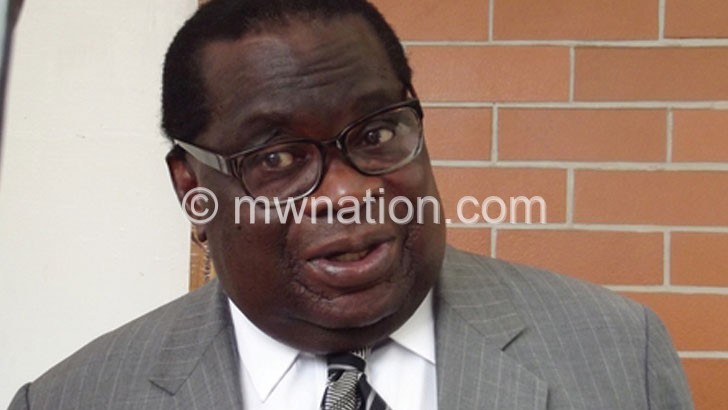MIE optimistic on 2017/18 budget
Malawi Institution of Engineers (MIE) has expressed optimism with the 2017/18 National Budget, describing it as robust, balanced and a promising instrument that can help accelerate economic growth if put to good use.
In a statement co-signed by MIE president engineer David Mzandu and executive secretary engineer Martin Chizalema issued yesterday, the local engineers’ body applauds government for encouraging the private sector to exploit the global trends of increased commodity importation by pushing for the production and marketing of legumes and cotton.

on May 19: Gondwe
However, MIE observes that there is omission of the long overdue drive for value adding manufacturing and processing of agricultural produce to maximise the profit margins in the value chain.
“MIE makes this observation and recommendation having noted the low prices of such crops with the example of pigeon peas which dropped from an average price of K550 at the opening of the market to below K200 by December 2016,” reads the statement in part.
The body further commends government for stabilising the economy and promising that Malawi is expected to generate enough domestic revenue that could exceed recurrent expenditure by close to K32 billion for the first time in a long time.
“We hope that such efforts can be sustained so that in the future, Malawi can be economically self-reliant, noting that no human being, institution or organisation that is not independent can unleash the inherent potential or become an outstanding figure compared to their peers.
“Malawi needs to begin to aim to grow big by becoming economically independent and self-sufficient. Malawi needs to rapidly graduate from the donor dependency syndrome,” MIE said.
Nonetheless, the body said it expected concrete plans for the immediate embarking on new and big power generation projects beyond the 1 000 megawatt (MW) Kam’mwamba Coal-Fired Power Plant project.
MIE said it has been many years without addition of new generation capacity to the national power grid and that it takes around seven years to design, implement and commission a power generation plant.
“We appeal for injection of budgetary support for the development of spinning reserve of electrical power as required by engineering standards so that the public do not get affected by rationing of power due to such events as planned or emergency maintenance of power generation, transmission or distribution systems,” said the engineers’ body, which has over 700 members nationwide.
Presenting the 2017/18 National Budget in Parliament on May 19, Minister of Finance, Economic Planning and Development Goodall Gondwe made a number of assumptions for the 2017/18 fiscal year, projecting that the economy will register an increased growth rate of between 5-6 percent in 2017 depending good weather conditions.
Gondwe also projected that inflation and interest rates will continue to drop, adding that the exchange rate will remain stable and that export proceeds reserves are likely to even surpass the three months import cover by the end of this financial year. n





